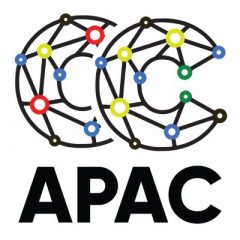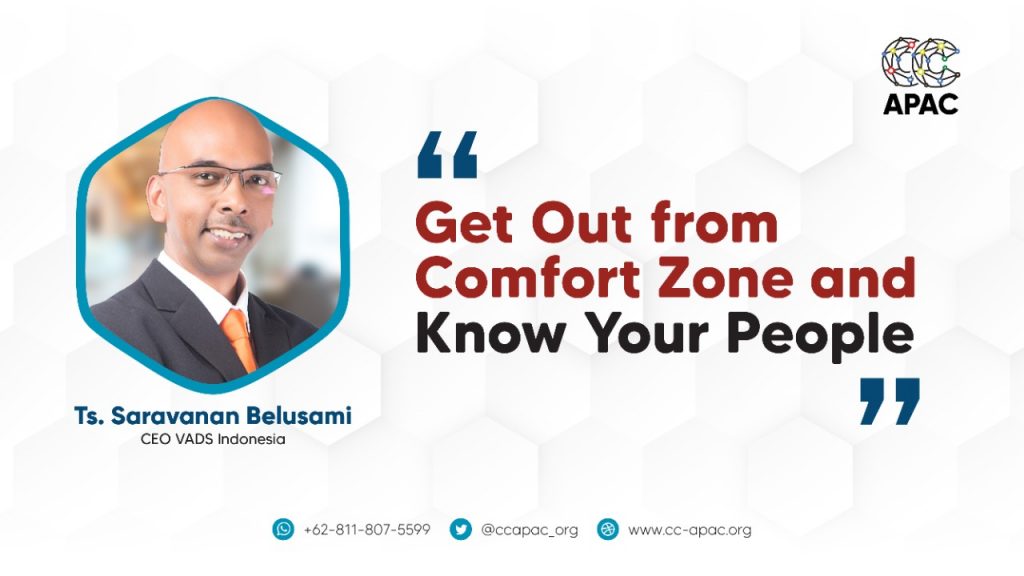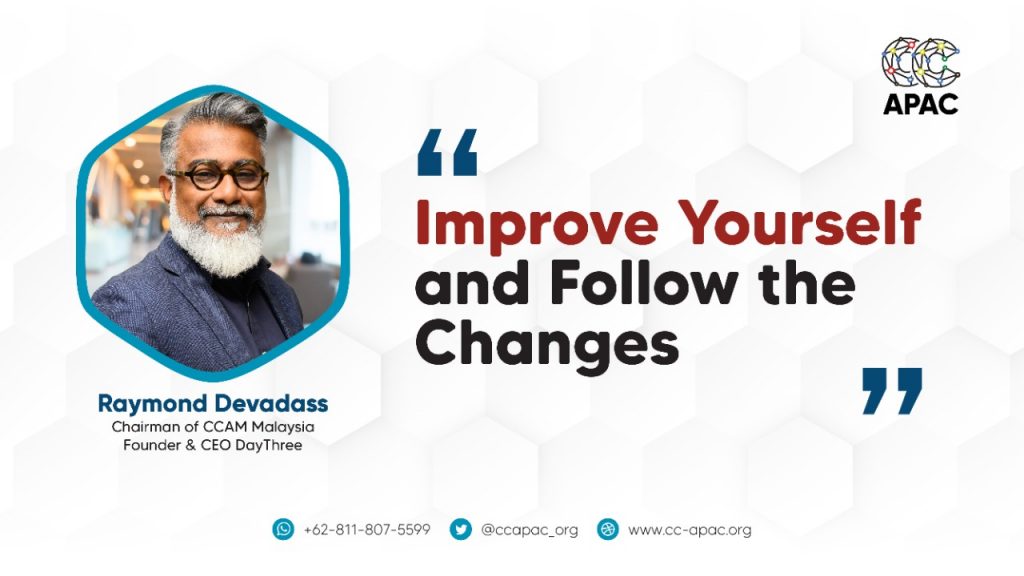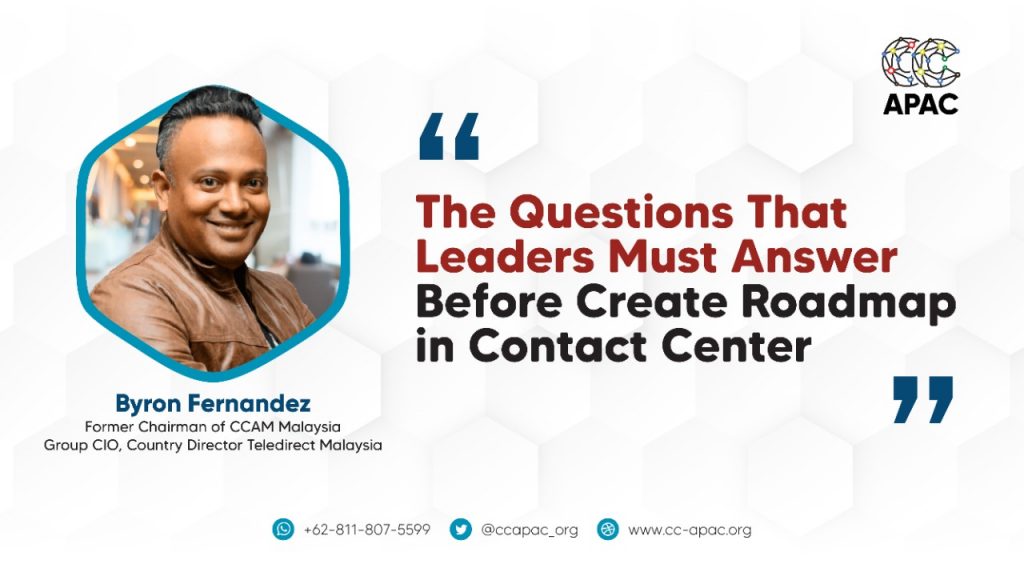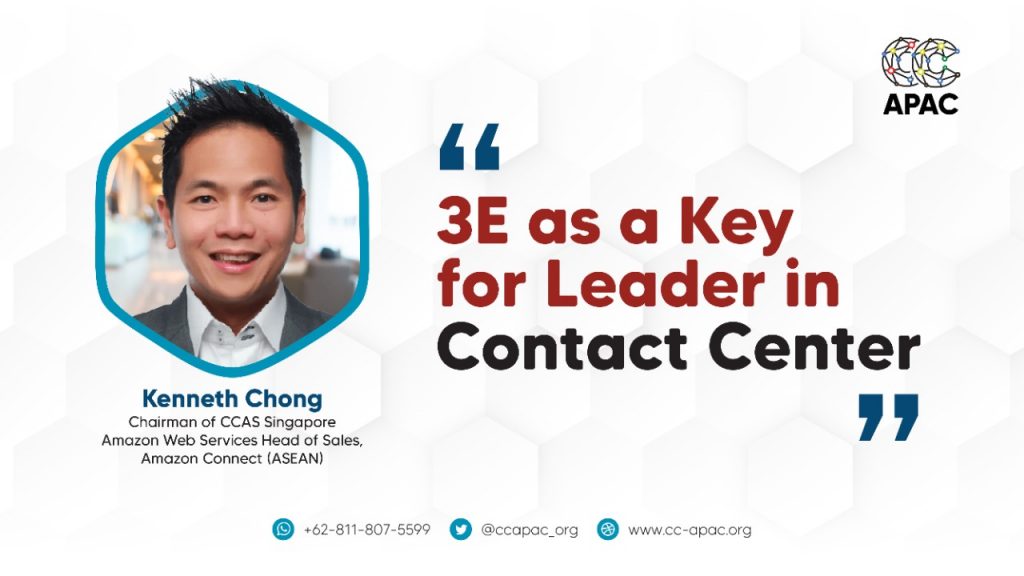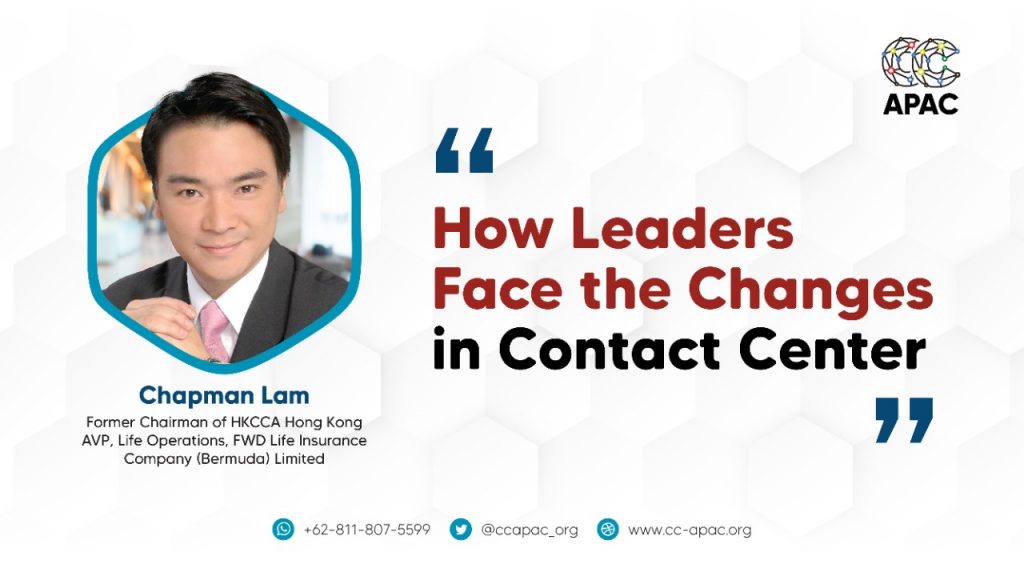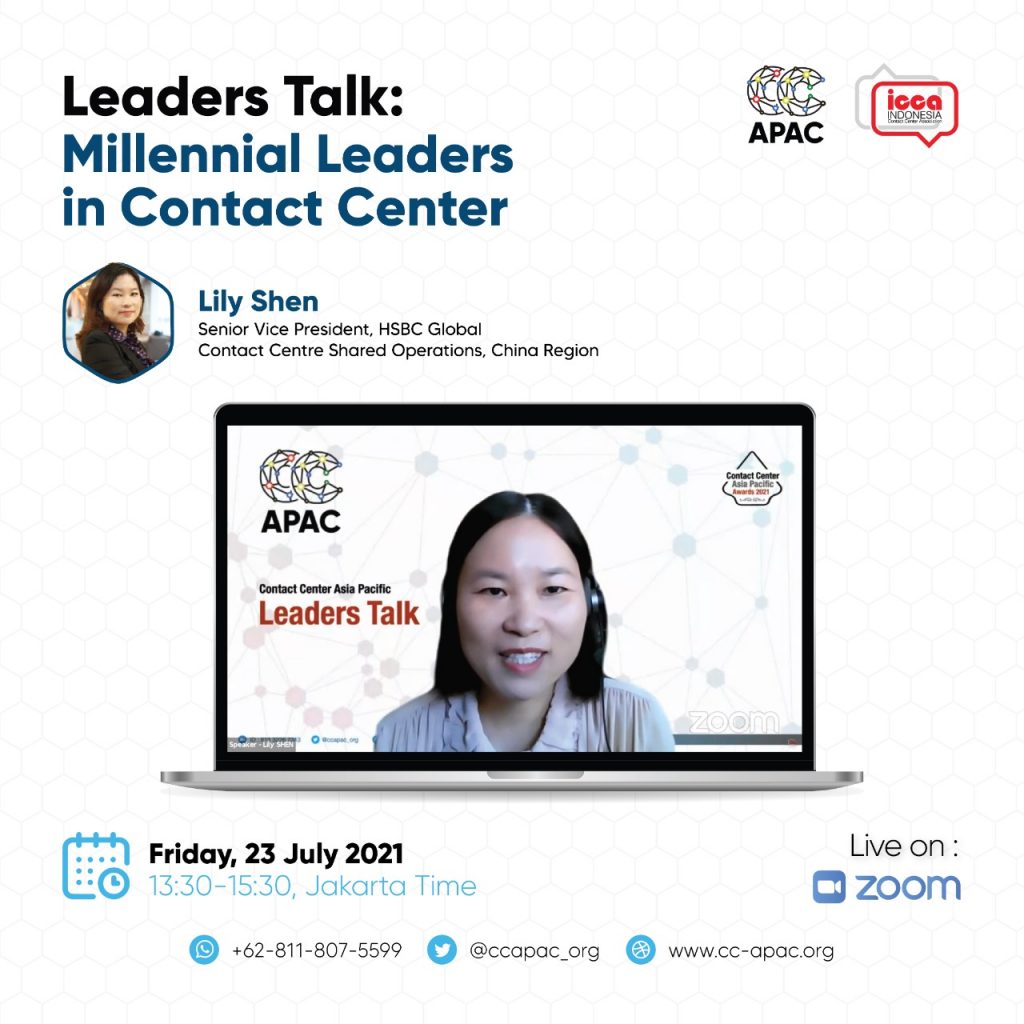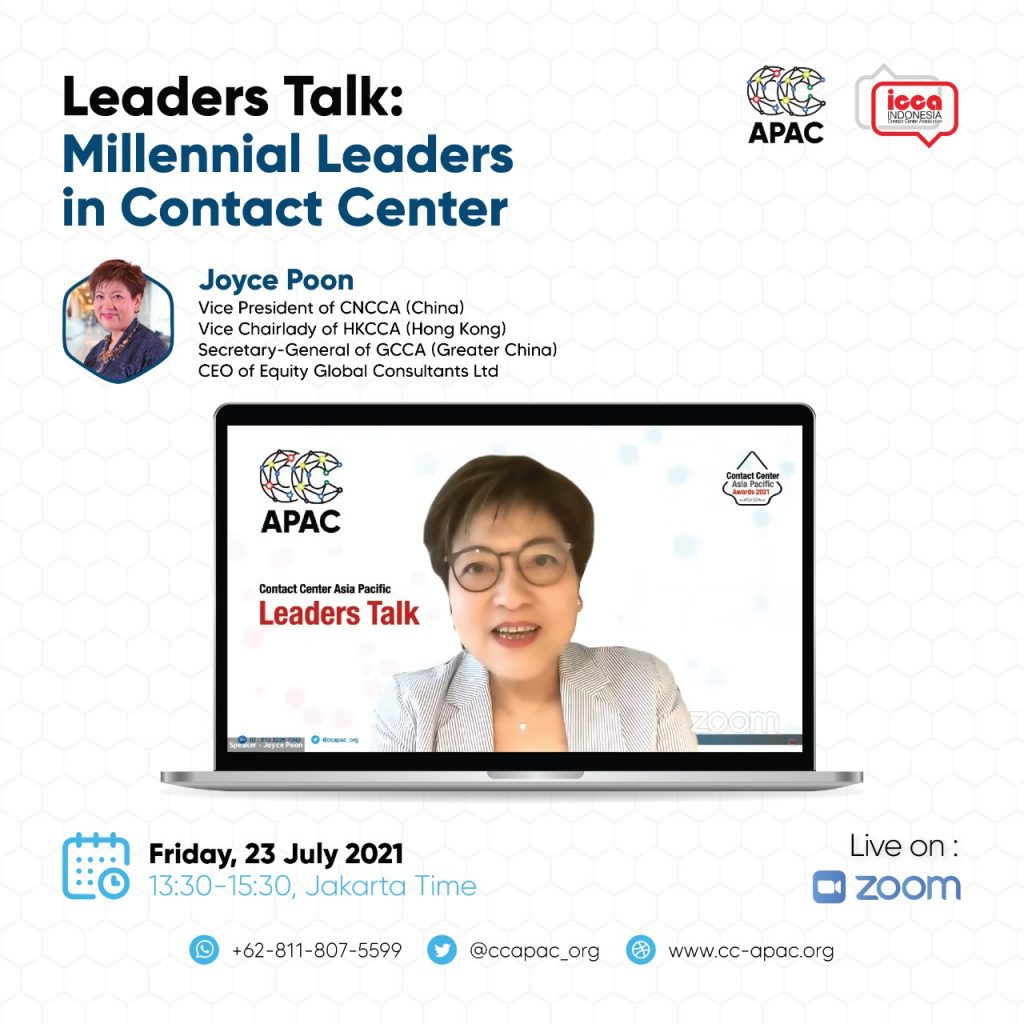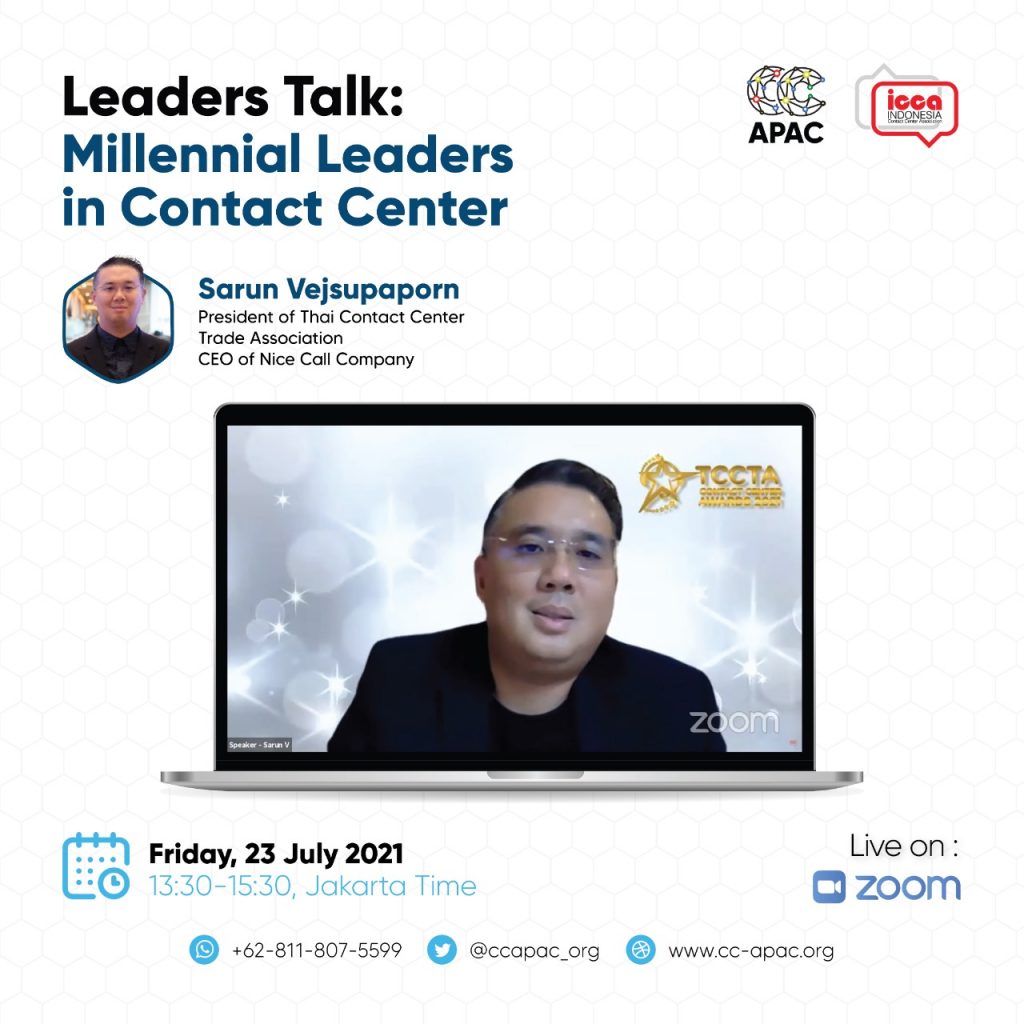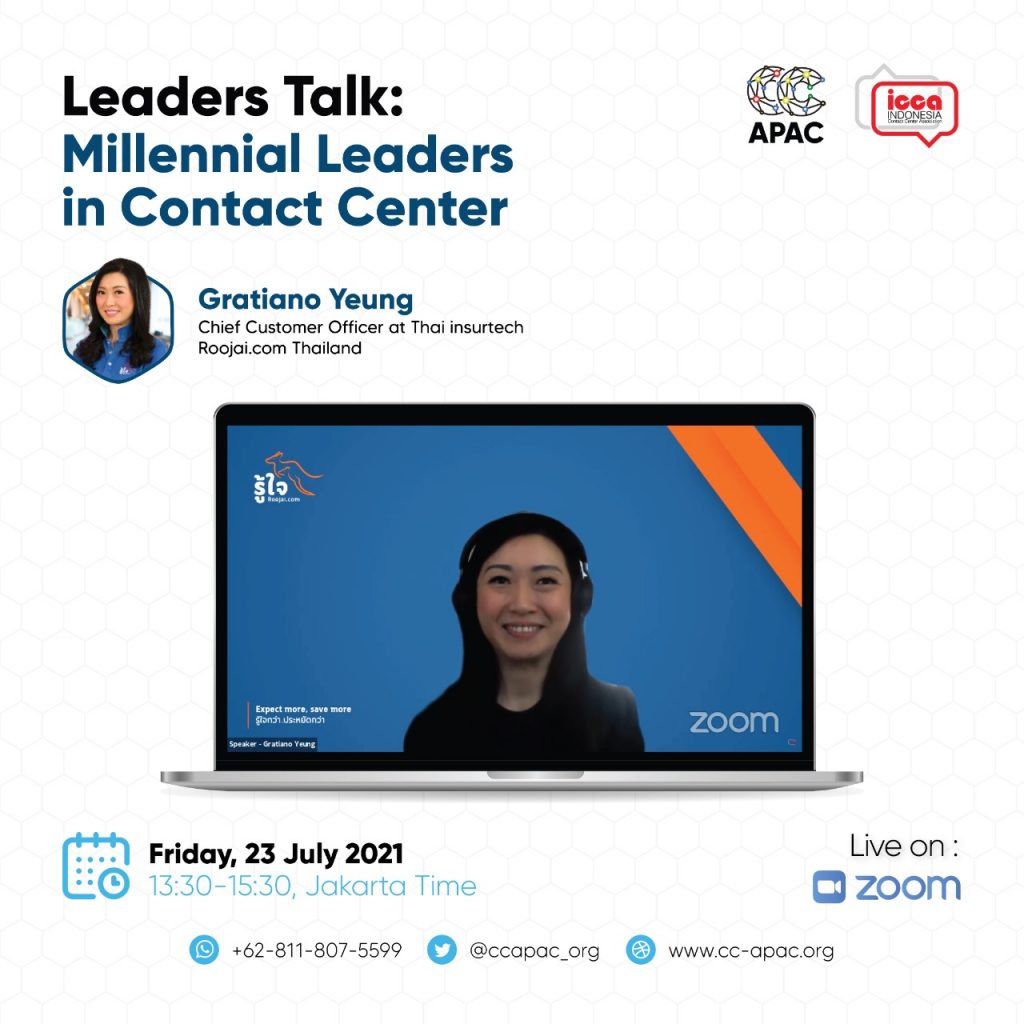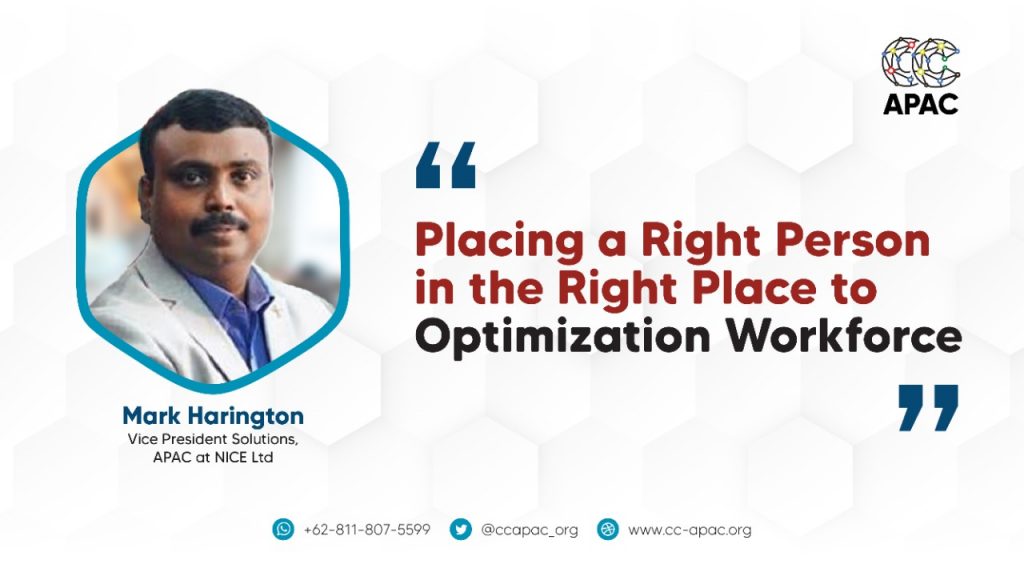
September 24, 2021 – In this Leaders Talk, the Contact Center Associations of Asia Pacific (CC-APAC) discussed “Workforce Optimization in Contact Center.” We invited three speakers who are professionals in the Asia Pacific contact center industry.
One of the speakers is Mark Harington, Vice President Solutions, APAC at NICE Ltd. Mark said that the industry has now come to a better. He said that we need to engaged workforce. Because today’s workforce they don’t do receptionist anymore because they answer the questions so hard. Compare it to chatbots and any other websites that can’t answer some of the questions, the receptionist is still better. And that is why you need to keep them more engaged in work and make their life easier, faster, better, and engaged.
About workforce optimization strategy in contact center, Mark shared his perspective. He calls that strategy a thick layer on the boiled egg. The thick layers are what our company decides on how to talk to our customers. Every company decides differently because some companies want to keep their customers happy and want their customers to love them. Some companies just don’t care about their customers and do the basic stuff only.
Mark also shared a summary of today’s discussion. He said that the way to deal with the shifts and markets, as the old man said that make sure you have the right person in the right places. Customers have to meet the right people who can answer their questions. Make sure you are there to answer what they need to answer. And if you can get to them before they even come to you, then that is great. That is the simplest way to organize your workforce.
He said that you can choose another option. You can go through technology, but you have to think about which vendor has the right experience in your domain. Who can understands your organization much better, what is the amount of changes management you change to adapt the staff. Then, all of these things are what allow you to have the right development. Spend more time asking about change management, what will happen in three months or six months, how have you done this before, what are the challenges in getting technology to another technology. (ANF)
